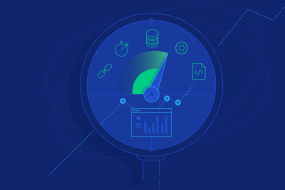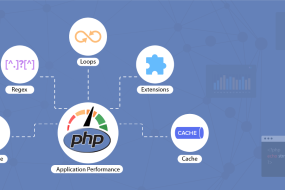
In the era of rapidly evolving technology, the demands on data processing and computing power continue to escalate. Companies worldwide are embracing the potential of Edge Computing and Auto Scaling to meet these demands, and the results are nothing short of remarkable. In this comprehensive guide, we’ll delve into the world of Edge Computing and Auto Scaling, exploring how these innovative technologies are transforming the landscape of data processing.
Understanding Edge Computing
The Genesis of Edge Computing
Edge Computing has emerged as a revolutionary paradigm shift in data processing. It transcends traditional centralized data centers by bringing computing power closer to data sources. This decentralized approach enables faster data processing and real-time decision-making.
The Crucial Role of Latency
One of the key drivers for the adoption of Edge Computing is latency reduction. In today’s fast-paced world, even a fraction of a second can make a significant difference. Edge Computing significantly reduces latency, making it ideal for applications that require instant responses, such as autonomous vehicles and IoT devices.
Edge Computing in Action
Edge Computing is not confined to a specific industry. From healthcare to manufacturing, businesses are harnessing its power to enhance operations. For example, in healthcare, Edge Computing supports telemedicine and remote monitoring, providing timely healthcare solutions to patients worldwide.
Auto Scaling: A Game Changer
The Auto Scaling Principle
Auto Scaling is a critical component of cloud computing. It allows systems to automatically adjust their computing resources based on workload. This dynamic allocation of resources ensures optimal performance, cost efficiency, and a seamless user experience.
Key Benefits of Auto Scaling
Auto Scaling offers a plethora of benefits, including cost savings, high availability, and improved performance. By automatically adding or removing resources as needed, it ensures that your applications can handle fluctuations in traffic without manual intervention.
Real-World Applications
Auto Scaling is not just theoretical; it’s actively shaping the technology landscape. Companies like Netflix use it to handle the surge in demand for their content during peak hours. The result is uninterrupted streaming for users around the globe.
Edge Computing and Auto Scaling: A Powerful Synergy
The Perfect Union
Combining Edge Computing and Auto Scaling is a game-changer. Edge Computing optimizes data processing at the source, while Auto Scaling ensures that resources are allocated efficiently. This synergy guarantees top-notch performance and responsiveness.
Scalability Meets Real-Time Processing
Imagine a scenario in which autonomous vehicles process data at the edge, while Auto Scaling ensures that the computing resources match the real-time requirements. This combination is not only efficient but also cost-effective.
The Future of Data Processing
The landscape of data processing is evolving, and Edge Computing and Auto Scaling are at the forefront of this transformation. Businesses that embrace these technologies are poised to stay ahead of the curve, delivering seamless experiences to their customers.
Final Words
In a world where data is king, the speed and efficiency of processing that data can make or break a business. Edge Computing and Auto Scaling have emerged as the dynamic duo, reshaping the way data is handled and enabling businesses to thrive in an era of instant gratification. Embrace these technologies, and you’ll be on the cutting edge of data processing.
Commonly Asked Questions
1. What is the primary advantage of Edge Computing?
Edge Computing’s primary advantage is its ability to reduce latency by processing data closer to its source, leading to faster response times.
2. How does Auto Scaling benefit businesses in terms of cost?
Auto Scaling ensures that businesses only pay for the computing resources they need at any given time, leading to cost savings and efficiency.
3. Can Edge Computing and Auto Scaling be applied to a wide range of industries?
Yes, Edge Computing and Auto Scaling are versatile technologies that can be applied to various industries, from healthcare to entertainment.
4. What challenges might businesses face when implementing Edge Computing and Auto Scaling?
One of the challenges is the need for a robust network infrastructure to support real-time data transfer between edge devices and centralized systems.
5. Are there any security concerns associated with Edge Computing?
Yes, security is a concern as data processing occurs at various edge locations. Implementing robust security measures is essential to protect sensitive data.
Advertisement







